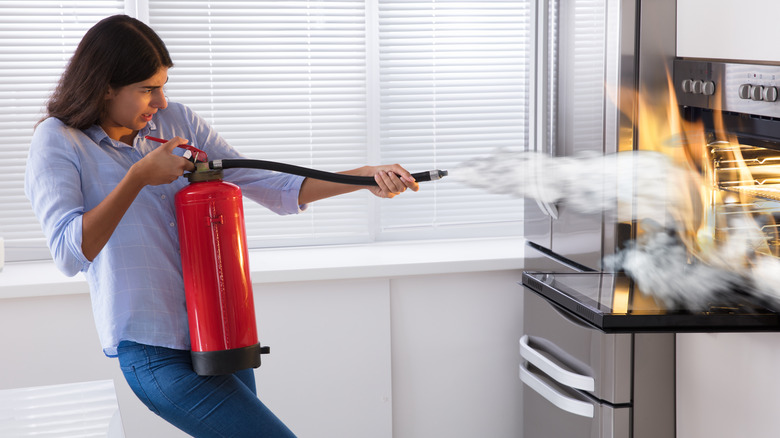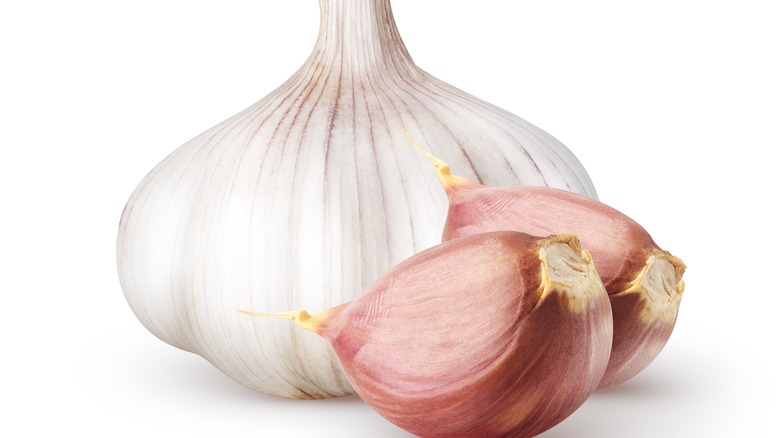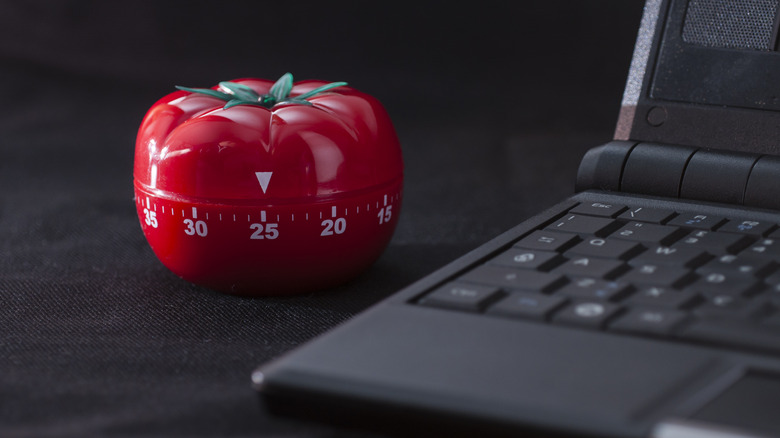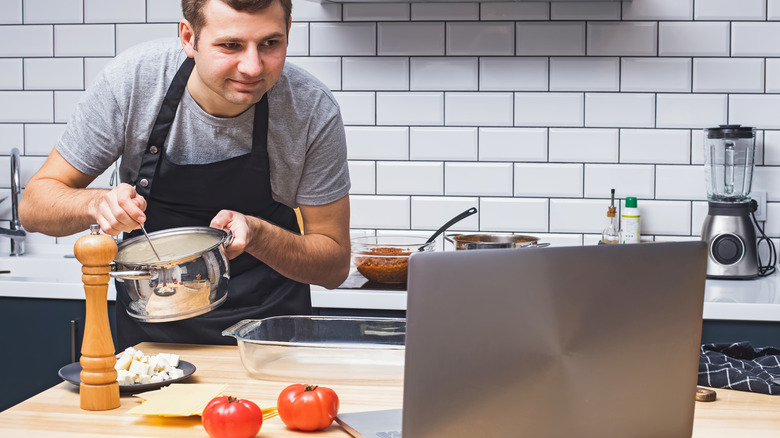According To Reddit, These Are Recipe Red Flags
Back in the olden days — we're talking way, way back through the mists of time, in the days before there was an internet — whenever you wanted to try a new recipe, you had to either ask your mother, grandmother, or that nice neighbor lady to write one out on a 3x5 index card. (Foodie dudes were also not a thing back in the day, so it was always a neighbor lady.) You could also buy, borrow, or check out an arcane tool known as a cookbook from the library. Yes, cookbooks are still around, but these days they primarily seem to act as nothing more than a glossy coffee table book since nearly everyone gets their recipes from the internet. Here, there may be hundreds, if not thousands, of spins on every dish known to humankind, all available free of charge — and with no danger of getting the pages all sticky while you cook. (You may splash a bit on your phone screen, true, but this is easier to wipe off.)
The problem with crowdsourced recipes, however, is that they haven't always been vetted, and in many cases you only have the recipe developer's word that everything turned out OK. Sure, there are comments, but those are not always as useful as you might hope, and mistakes, as well as disingenuous instructions meant to minimize a recipes difficulty, abound. A recent Reddit thread went into depth about "recipe red flags" we would all do best to avoid.
The OP's pet peeve involved garlic
The thread kicked off when the Redditor who started it admitted to being a newbie cook who still felt the need to stick pretty closely to a recipe, but said they had been burned more than once by following poorly written or inaccurate directions. More accurately, it was one of the OP's ingredients that wound up in the hot seat since, as they described the issue, on more than one occasion, they followed directions to cook garlic over medium heat for 2 minutes. As any more experienced cook (meaning, one who's had this happen to them a few times) could predict, this unfortunate Redditor "ended up with burnt garlic more than I'm proud to admit."
Garlic, as many of us are painfully aware, burns very easily! What's more, as one commenter pointed out, "burned garlic gets very bitter." As garlic cloves are much smaller than onions and recipes typically call for a lesser amount of the former ingredient, garlic and onions do not take the same amount of time to cook. As one person put it, "[A] red flag to me is when a recipe calls for adding the garlic and onion at the same time." Some suggested adding the garlic to the pan after the onions are already soft, while others preferred to cook the garlic before adding the onions. Everyone seemed to agree, however, that garlic needs to be watched very carefully to make sure it doesn't scorch.
Prep times may be misleading
Another sore subject for many home cooks is when a recipe developer will essentially gloss over half the prep time by calling for ingredients that are already peeled, chopped, cooked, et cetera, all the while knowing that these steps most likely can't be performed too far in advance, nor can these items be purchased already prepared. One commenter mentioned a major red flag being "'5 minute meals' [that] take 20-30 minutes of prep," while another person answered that yes, five minutes would be accurate if and only if you leave out the time it takes to track down any hard-to-source ingredients, the time it takes to prepare all of the vegetables, the time it takes to set up a mise en place with all ingredients measured and ready to go, and if, of course, "You throw away all your dirty pots and pans after cooking."
Another person had what we think is a totally genius idea: "[A] cooking competition show where recipe writers have to make their own recipes and only have the amount of time listed on the recipe to work on it before judging." As they went on to say, "Prove to me I'm not just slow! (I am slow but not that slow)." Yes, we are totally feeling this! That applies to every one of us home cooks not in possession of Hermione Granger's time turner.
Likes and comments don't mean the recipe is good
How many times have you gone looking for a recipe, say, for chocolate chip cookies, and chosen one based on the fact that it had a 5-star rating and 100+ comments? Well, did you actually bother to read the comments? If you did, you might have found out that those 5 stars really don't mean that much after all. As one Redditor pointed out, "Don't assume that just because a recipe has a lot of likes/comments means it is good. Read the comments. I often see likes because the comments say: 'I'm going to make this', 'this sounds really good', etc." Someone else supplied an oh-so-typical recipe blog comment: "This looks so good. You make the prettiest dishes. Glad your grandkids are doing well." Gratifying to the recipe developer, no doubt, but utterly useless to the rest of us.
It is possible, however, that the comments might give you some important info about the recipe and how it might need to be tweaked. Well, not in the case of a comment along the lines of, "I substituted every ingredient and it turned out great, 5 stars! " One tip, though, is worth following: "See what the comments say about it if they have made it. On a few, I see 'Great but I did this......' and a lot of people changed the same part which makes the dish."
Reputably sourced recipes are your best bet
If you don't have sufficient experience to know if there's anything "off" about a recipe and it's published on a site that does not allow comments or ratings, how can you tell whether it will be safe to follow? As one Redditor reminded us, reputable sources are our friend, explaining, "There are people who write and test recipes for a living and there are people who write blogs and make social media content." What this means is, if your recipe comes from The New York Times, America's Test Kitchen, Bon Appetit, or another publication employing professional chefs, you should be OK following the recipe as written. If, on the other hand, you pick up a recipe from an amateur food blogger or something posted to social media, well, it's more of a crapshoot. Yes, the recipe may turn out well, but there are no guarantees.
No matter how reputable the source, though, bear in mind, as another Reddtor cautioned "mistakes and typos do happen." If you come upon a recipe calling for ¼ cup of pepper where ¼ teaspoon would make more sense (as one commenter says was the case with a Giada De Laurentiis recipe a while back), there's a good chance this is a typographical "oopsie" rather than the developer's intent. If any step in the recipe doesn't make sense to you, and you are not sure how to correct what was likely a mistake, it's better to pass on the recipe until the error is fixed.




